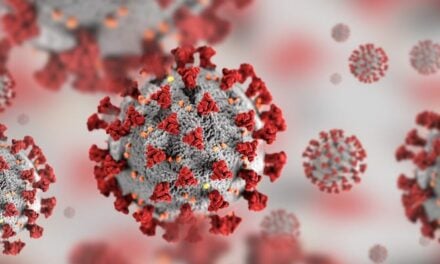A parallel test developed by Karius aims to improve treatment for serious diseases by diagnosing infections more rapidly and effectively in immunocompromised patients.
By Chris Wolski
A new approach to testing for infections in immunocompromised patients promises to improve treatment outcomes. This parallel test, the Karius Test, was the subject of a recent multi-center study at 10 medical institutions, including Duke University Health System, University of Pittsburgh Medical Center, MD Anderson Cancer Center, Tulane Medical Center University of California San Francisco Medical Center, Memorial Sloan Kettering Cancer Center, among others was shown to be effective in diagnosing pneumonia in patients with blood cancers.
This study has significant implications, according to Brad Perkins, MD, chief medical officer of Karius.
“We’ve had the ability to identify infectious diseases for the past 150 years, and have developed infection-by-infection tests. The typical way to diagnose a disease is through serial testing,” he explains. “The Karius Test is a parallel test, and that change is quite profound.”
Instead of subjecting patients to multiple and, possibly, invasive tests—such as a bronchoscopy for pneumonia patients—the Karius Test can be used to test for multiple pathogens at once non-invasively.
The Karius Test is a blood test based on metagenomics next-generation sequencing of microbial cell-free DNA.
In the study, Pneumonia in the ImmunoCompromised—Use of Karius Test for the Detection of Undiagnosed Pathogens (or the PICKUP Study), the standard diagnostic approaches to identifying pneumonia found the cause of the disease 30% of the time. The Karius Test showed a 40% relative increase in the diagnosis of cause of pneumonia.
According to the company, pneumonia is a leading cause of death among patients currently undergoing treatment for blood cancer, as they are often at elevated risk of infection throughout their treatment.
In a twist that wasn’t surprising to Perkins, many of the patients had infections other than pneumonia that were causing their symptoms, due to their immunocompromised status.
“In many serious diseases, there’s a range of organisms that are more infectious that can disrupt treatments for underlying disease,” says Perkins.
The Karius Test, which is an LDT, is a send-out test with a 24-hour turnaround time, which Perkins says is still faster than if a hospital followed standard serial testing protocols.
Currently the focus of testing is on hospitalized immunocompromised and solid organ transplant patients.
Perkins hopes to increase interest in the Karius parallel test to improve adoption.
“We have the interest of infectious disease physicians, but we want to broaden the understanding of hematologists and oncologists,” he says. “What we’re doing is a big deal to save lives.”
The PICKUP Study involved 257 hospitalized adults with pneumonia and active hematologic malignancies, who had recently undergone a hematopoietic cell transplant, or were receiving immunosuppressive therapy for active graft versus host disease.
Chris Wolski is the chief editor of CLP.
Updated 10/13/2023





